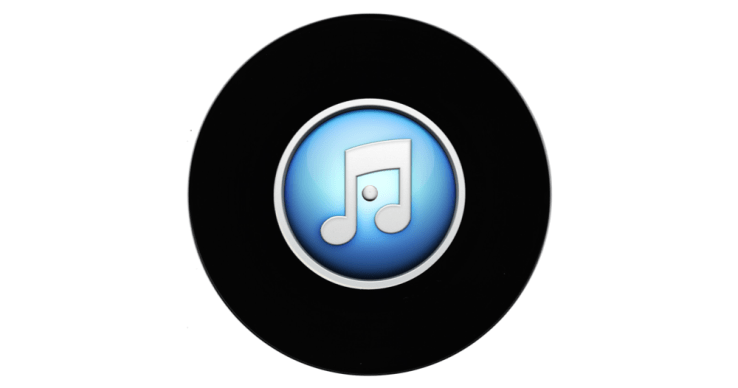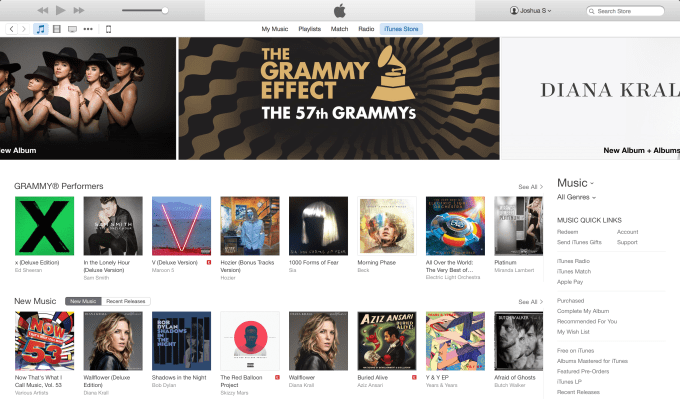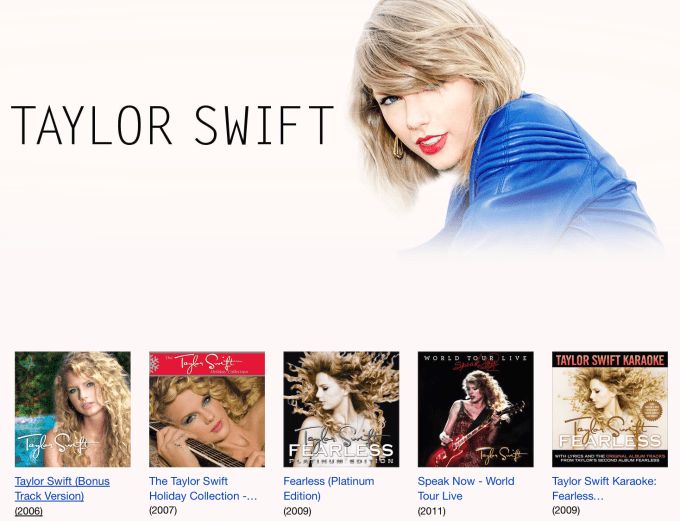Story:TechCrunch

You better believe that when Apple’s streaming music service comes out later this year, it’s going to come hard. Apple’s MO is to arrive late but with superior firepower, as it did with the iPhone and will with the upcoming Apple Watch. What does that mean for its quest to steamroll Spotify, Google Play, Deezer, and everyone else in streaming? I’d bet part of it will be big exclusives, offering music you can’t stream anywhere else.
Apple denied unsubstantiated rumors that it would acquire Taylor Swift’s label Big Machine this weekend, but that idea doesn’t seem so far-fetched. Yes, The Beatles’ label happened to be called Apple Records, but what if Apple Computer got into the business of owning music itself?
Swifty is already a staunch iTunes ally. She famously pulled her catalogue from Spotify last year because she disagreed with their royalty payment structure, while managing to get her new album 1989 featured for sale on iTunes. I’ve heard that that actually gave a ton of mainstream press exposure to Spotify, along the lines of “Wait, there’s a free way to listen to all of music except for Taylor Swift? I’m in.”
But this situation looks a lot worse for Spotify if it faces a competing streaming service where people can shake it off on repeat. Taylor Swift got even more popular tonight thanks to the Grammys.
Spotify and the other existing streaming services are going to have a hard enough time competing with Apple’s play already. iTunes is said to have over 800 million credit cards on file and is available in nearly 150 countries. Compare that to the Spotify’s 15 million paying subscribers and roughly 60 countries of operation.
Oh, and then there’s those 1 billion iOS devices sold. If iTunes’ streaming app comes pre-installed in the next generation of iPhones and iPads, it could leapfrog Spotify’s user base over night.
The always well-sourced Mark Gurman of 9To5Mac says the new Apple streaming service will be deeply integrated into iOS, iTunes, and Apple TV, plus will be available on Android. And to make it even harder on competitors, Gurman says the price point under consideration is $7.99 a month, which would undercut the $9.99 a month cost of Google Play Music and Spotify’s paid tier.
For Your Ears Only
And then there’s the potential for exclusives. Music execs tell me that artist managers and labels are constantly trying to pitch exclusivity deals to iTunes in return for being featured in its store. They’ll do the same to get highlighted in Apple’s streaming service.
The question is just how aggressive Apple will get with this strategy. Would it buy artists, their master recordings, or entire labels to box out its competitors? The risk is that other artists or labels might think Apple is playing favorites with people it has deals with. But Apple arguably already does this in the app world, pre-loading its own media and productivity apps on iOS and promoting them when possible.

Imagine if Apple could lock up exclusive streaming deals with Taylor Swift or Coldplay, two artists it’s been very chummy with in the past, or its own employee Dr. Dre? Apple already has an exclusive digital sales deal with The Beatles for iTunes. If Apple can convince their representatives to let iTunes be the first and only ones to stream the fab four’s masterpieces, it could go a long way to attracting mainstream listeners.
Luckily, Apple’s got music industry legend and super-connector Jimmy Iovine to convince artists its the smartest move. The company has also staffed up with many former label execs Being the sole place to stream these musicians could lure plenty of fans to an on-demand iTunes service.
Spotify has already used a similar strategy to seduce rock’n’roll fans. It struck deals to get streaming hold-outs like Led Zeppelin, Napster-haters Metallica on its platform. Perhaps it will be the one to go the next step and sign artists. Spotify incubating a set of indie artists on the cusp of popularity seems plausible. To fend off Apple, Spotify will have to rely on its free ad-supported tier, focus on product and personalization, and its burgeoning ecosystem of third-party apps that piggyback on its legal music subscription.
Despite its advantages, Apple will likely have to navigate the complication of simultaneously offering music download sales and streaming. To many more casual listeners, the idea that their slowly amassed MP3 collection will suddenly be devalued in the face of limitless streaming may be a shock. It’s efforts with iTunes Radio didn’t pan out so well in part because teaching new tricks to its audience of old dogs isn’t easy.
Still, Apple revolutionized the music biz, for better or worse, with the songs a la carte model of iTunes, and it has the leverage to do it again.
Apps Over Labels
The value that record labels provide is dwindling. The last two crucial services they provide are distribution to physical stores and FM radio promotion. Artists need both to become superstars today, but online alternatives to those channels are quickly growing.
That’s placing more of the value creation around record music in the hands of full-stack management agencies like Red Light and Zeitgeist. They handle merchandise, touring, digital, and brand sponsorship where the big bucks get earned as recorded music becomes a promotional vehicle for other revenue streams.

The shifting role of record labels could make artists more open to experimenting with an idea like signing directly with a streaming service, or getting their label to cut a significant exclusivity or acquisition deal with one.
Music is game where Apple could get a lot out of throwing its money around, while the relatively tiny, private Spotify lacks the cash and Google seems to lack the will to keep up. Plenty have joked that Apple could buy all of recorded music with its massive treasure chest. But to win streaming, it might just need control of a fraction of it.
No comments:
Post a Comment